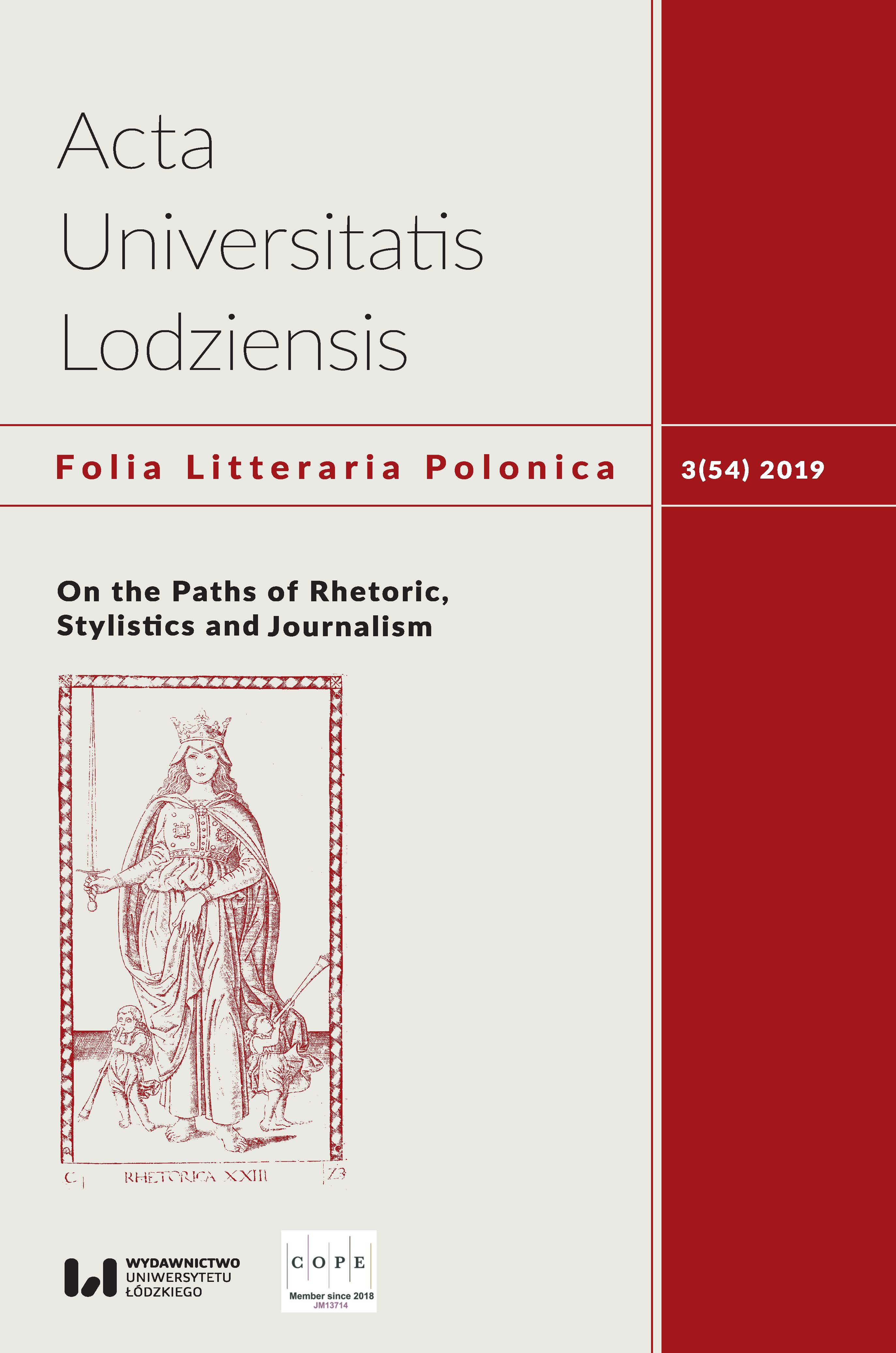Rhetoric as a Tool for Studying Our Thoughts: What is “Téchne Rhetoriké”?
Rhetoric as a Tool for Studying Our Thoughts: What is “Téchne Rhetoriké”?
Author(s): Jakub Z. LichańskiSubject(s): Language studies, Language and Literature Studies, Applied Linguistics, Methodology and research technology
Published by: Wydawnictwo Uniwersytetu Łódzkiego
Keywords: rhetoric; language; linguistics; science methodology; M.F. Quintilian, W.C. Booth; I. Kant; R.E. Volkmann; W. Windelband; der Wiener Kreis
Summary/Abstract: Rhetoric is not only a methodology of the humanities. It is the most important of the sciences the ancient thinkers left us. It defines not only the methods of argumentation from uncertain premises, and not only is it a theory of text, but most of all it is a tool for organising our thoughts and preparing texts, the aim of which is to convince, but in a way which ensures knowledge and not opinion (Kant). However, the language that we use often fails us. Both Plato and Aristotle warned us about this. At the same time, they developed the foundations for téchne rhetoriké, the systemic shape of which we owe to Quintilian. Rhetoric, as posited by its ancient as well as contemporary researchers, is not a lexicon of gimmicks (Volkmann). It is rather an analogue of logic (Volkmann). As Wilhelm Windelband said: “thanks to grammar and rhetoric we have learnt the correct rules of thinking.” The author discusses not only the history of the studies of rhetoric, but also of language, mainly referring to the traditions of the Vienna Circle (Der Wiener Kreis). Though the achievements of contemporary linguistics and the contemporary studies on the philosophical foundations of linguistic studies are considered, the perspectives defined by Immanuel Kant and the researchers from the Vienna Circle are dominant. The aim of this study was not only to reiterate Windelband’s thesis, but also to verify it more comprehensively.
Journal: Acta Universitatis Lodziensis. Folia Litteraria Polonica
- Issue Year: 54/2019
- Issue No: 3
- Page Range: 51-66
- Page Count: 16
- Language: English

